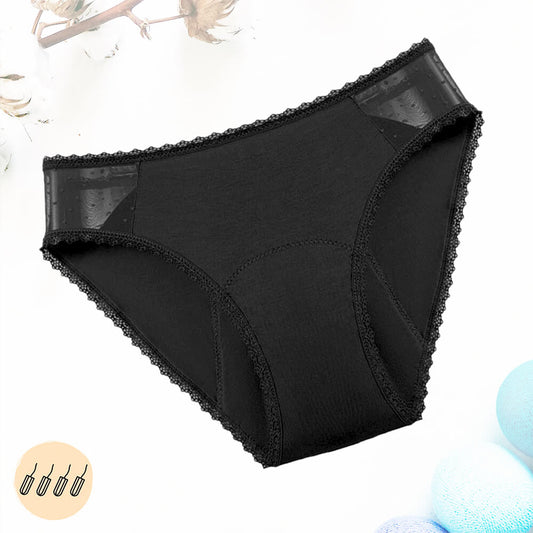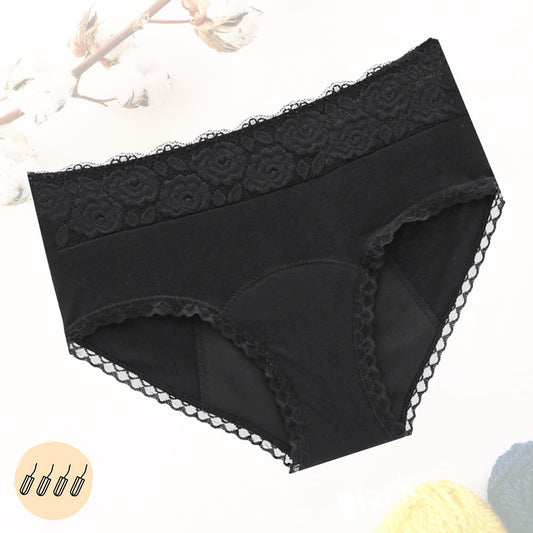
Some women may experience bleeding and spotting around the time of ovulation. Ovulation spotting is light bleeding that occurs around the time of ovulation. Ovulation occurs when the ovary releases an egg ready to be fertilized in the middle of the menstrual cycle. In fact, it's quite common for women to experience ovulation bleeding outside of their period during their menstrual cycle. But should we be worried about ovulation bleeding?
What is Ovulation Bleeding?
Ovulation bleeding, also known as ovulation spotting, is mild vaginal bleeding that occurs during, before, or after ovulation. Ovulation bleeding can occur in the middle of your menstrual cycle but also outside of your period. These discharges are much lighter than your usual period and usually only last a day or two.
When Do Ovulation Bleeding Occur?
Ovulation usually occurs between 11 and 21 days after the first day of your last period. Depending on the length of your cycle, it may also happen earlier or later in some women. The time of ovulation is when you are most fertile and have the highest chance of getting pregnant compared to other times in your menstrual cycle.
Signs and Symptoms of Ovulation Spotting

Most women feel nothing. However, ovulation spotting may come with mild side effects similar to what you might usually experience during your period. Some signs in particular allow you to know if you are at the ovulation stage:
- Increased amount of cervical mucus
- Changes in your basal body temperature with a slight drop in temperature before ovulation followed by a sharp rise after ovulation.
- Slight pain in the lower abdomen
- Higher libido
- Increased luteinizing hormone (LH) levels
- Stronger breast tenderness
The Difference Between Ovulation Bleeding and Implantation Bleeding
While ovulation bleeding occurs around the time your body releases an egg, implantation bleeding occur when a fertilized egg attaches to the inside wall of your uterus. Unlike ovulation bleeding, which usually occurs in the middle of the cycle, implantation bleeding occurs a few days before the next period. Since implantation bleeding occurs around the same time as your period, you may mistake it for your regular period.
Whether in the case of ovulation bleeding or implantation bleeding, the use of periodic protection such as a Period Panties can allow you to absorb the flow to prevent leakage without compromising your daily activities.
Bleeding During Ovulation
Ovulation bleeding is most often the result of hormonal fluctuations that occur around the time of ovulation. Studies have shown that people who experience ovulation bleeding may have higher levels of progesterone and luteinizing hormone at this time of the month.
Before ovulation, estrogen levels rise, then fall after the egg is released. This is when progesterone levels begin to rise. This change between the level of estrogen and progesterone can sometimes cause ovulation bleeding.
Bleeding After Ovulation
Spotting after ovulation can also be a sign of implantation bleeding, a phenomenon that occurs when the fertilized egg comes to attach to the inner wall of the uterus. It is one of first early signs of pregnancy what some women feel when they become pregnant. As this bleeding is often mixed with cervical fluid, it usually results in pink losses or brown.
Can you bleed during ovulation?
It is sometimes difficult to tell the difference between ovulation bleeding and other causes of bleeding. When you have light, light bleeding during your ovulation period, there's probably nothing to worry about. To make sure you are having ovulation bleeding, it may be a good idea to start recording any symptoms you are experiencing using a calendar, diary, or notebook. period tracker app. Nevertheless, in case of heavy and prolonged bleeding, do not hesitate to consult a specialist for an accurate diagnosis.





